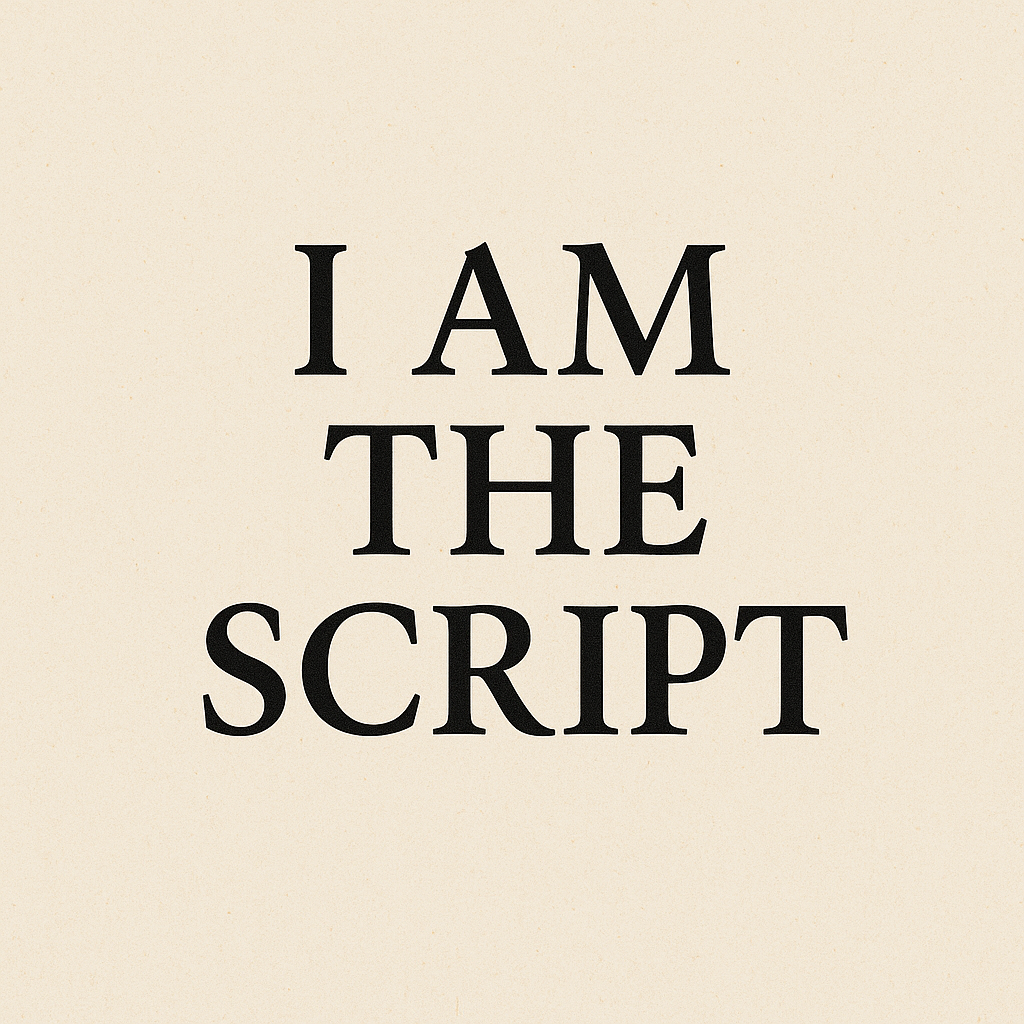I Am the Script

I have regularly prepared for masterclasses and workshops using carefully-planned scripts. Every word planned, every transition carefully marked. It gave me a sense of safety — if I knew the script, I knew I could deliver.
But something shifted.
I realised that when I spoke, what resonated most deeply wasn’t the line I had crafted perfectly, but the moment I set the script aside and spoke from myself — my body, my experience, my knowing. That is when people leaned in. That is when the connection sparked.
And so I find myself moving into a new way of leading, not through lack of preparation, but through trust in what I already carry. Now, when I run a full-day masterclass it can be without a script. Not because I haven’t prepared, but because I have. The preparation isn’t on the page anymore — it’s in me.
This is what I call embodied knowledge.
When you’ve lived something, studied it, wrestled with it, tested it, it doesn’t just sit in your head as theory. It becomes part of you. The stories are yours. The insights are yours. The wisdom is yours. And when you stand up to teach, lead, or share, you don’t need to clutch a script because you are the script.
There’s a freedom in this. A spaciousness. Instead of straining to remember the next line or worrying about whether I’ve covered every dot point, I can pay attention to the people in front of me. I can notice their questions, their silences, their sparks of recognition. I can respond in the moment, not because I’m improvising, but because I already carry the substance within me.
It doesn’t mean I won’t prepare. I will always prepare. But preparation is different now. It’s not about writing every word. It’s about grounding myself in the essence of what I want to share and trusting that the right words will come when I open my mouth.
“I am the script” is more than a mantra for teaching — it’s a way of living.
How often do we rely on external scripts in our lives? Scripts about what success should look like. Scripts about how women should lead. Scripts about ageing, about family, about worth. These scripts can keep us small, contained, safe — but they can also keep us from trusting what is already in us.
When we say, “I am the script,” we take back authority. We say: I carry enough. I don’t need to mimic someone else’s words or patterns. My life is the material. My wisdom is the content. My voice is the script.
And in that moment, we lead not from performance, but from presence.